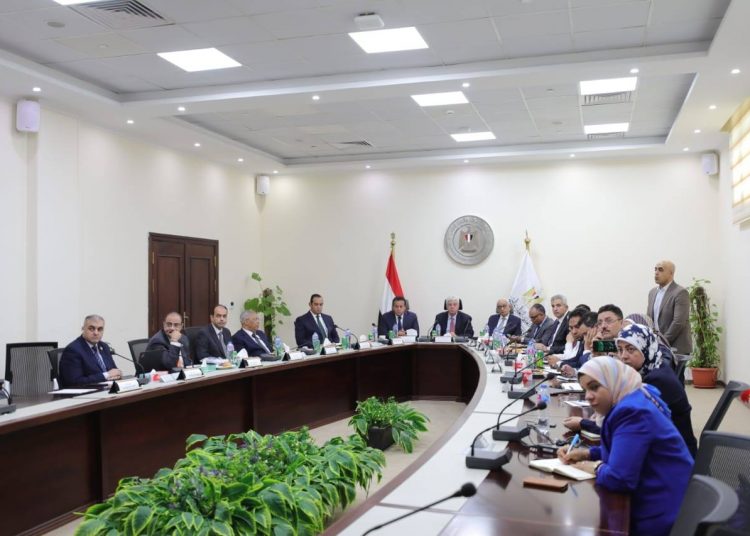Egypt’s Minister of Higher Education and Scientific Research Ayman Ashour chaired the meeting of the Board of Trustees of the Egyptian Knowledge Bank, in the presence of Khaled Abdel Ghaffar, Minister of Health and Population, and Education Minister Reda Hegazy.
According to a statement, Ashour stressed the importance of the Knowledge Bank (EKB) as it is one of the largest knowledge banks in the world because of the cultural, and research resources it contains to support education and scientific research, and to disseminate science nationwide through international, regionaland local publishing companies. This helps make information available, develop skills, and support academic scientific publishing, noting that this reflects the political leadership’s deep belief in the importance of education and knowledge in building the Egyptian human being.
The Minister praised the efforts of the Egyptian Knowledge Bank to Egyptian researchers, by providing a huge amount of knowledge in various scientific disciplines, as well as its role in improving the classification of Egyptian universities, institutions and research centers internationally In order to achieve Egypt’s vision for sustainable development 2030, pointing to the development of services provided by the Knowledge Bank.
The Minister reviewed the Egyptian Knowledge Bank projects related to education and the services it provides to universities and research centers.
The minister stressed the importance of maximising the benefit of the Knowledge Bank in light of the unique and enormous potential it provides for learning and training, and making all types of sciences and knowledge available to students and researchers, in addition to its role in developing skills, preparing qualified graduates for the labor market, and raising the level of Egyptian universities, institutions, and research centers internationally.
The council discussed the proposed work plan to renew contracts during the year 2024, which includes determining the volume of use of the services and subscriptions that were provided during the year 2023, as well as polling the opinion of universities and concerned parties and benefiting from the services according to their needs for the year 2024, and searching for the best ways to provide publishing and browsing services to publishers through specialists and presenting them To the Board of Trustees during its next meeting.
The Council also discussed work mechanisms during the coming period, including: expanding free publishing agreements with international publishers, improving the classification of universities and research centers, and confirming the role of the Knowledge Bank as a platform for disseminating and circulating knowledge by increasing the numbers of scientific journals and international conferences hosted by the Knowledge Bank on its electronic platform.






Discussion about this post